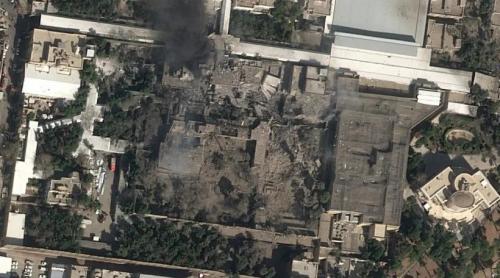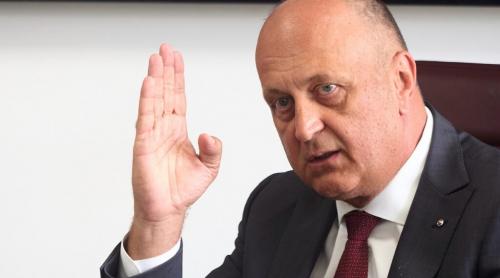
The head of the Executive's Department for the Relationship with the Parliament Valentin Iliescu informed in a letter the leadership of Romania's Central Bank that a draft law for amending the 2010 budget law plans to add Romania's gold reserves to the budget revenues.
The Central Bank Governor Mugur Isarescu answered in a letter he put forth in two arguments against the proposal: Law 312/2004, regulating the status of Romania's Central Bank, and the European Union legislation.
Why does Romania need its gold reserves to stay in the Central Bank coffers?
To enable it pay its credits abroad, to give credibility to the country that would enable it apply for further credit on international markets, to absorb financial shocks in times of crisis.
For all the above reasons the Central Bank has an obligation to preserve the gold reserves at a given, minimum level that would allow it to perform the aforementioned tasks.
This is why it will defend those gold reserves tooth and nail.
The draft law actually proposes to finance the budget deficit with the Central Bank gold reserves.
But this comes in full infringement of Law 312/2004, which forbids the Central Bank to act as a creditor to the state.
At the same time, it infringes upon the EU legislation, which states that no national laws may regulate that a central bank is allowed to finance public authorities.
Also, Romania's Constitution stipulates in Article 148.2 that as a result of the country's accession to the EU, "all provisions in the EU founding treaties, as well as all the other EU norms that have a mandatory provision, take precedence to the domestic law."
The report on convergence drafted by the European Central Bank in May 2010 concludes that Romania's legislation does not comply with all the requirements for an independent Central Bank, forbidding financing the budget from monetary sources and integrating the bank in the Eurosystem.
Therefore, it is crystal-clear that adopting further legislation infringing upon the independence of the Central Bank would continue to go against the EU law and also damage Romania's image.
This is the second warning the Central Bank sends the Parliament that its draft laws plan to curtail the bank's independence. The previous such answer was elicited by a draft law planning to use the Central Bank hard-currency reserves to develop Romania's tourism.
The question is: how did law-makers arrive to the conclusion that only the central bank reserves may come to the rescue of the ever shrinking budget revenues?
Well, because for the past two decades, the electoral logic beat the economic logic.
The EU introduced a fixed and permanent criterion: a 3% cap on the national budget deficits. True, the economic crisis pushed the deficit in many EU countries beyond that limit. This prompted that tight budgetary policies were adopted prior to those aiming at plucking the economies out of the recession.
This, however, did not mean at any time that laws, treaties and good practice norms may be infringed upon.
Translated by AAP

















